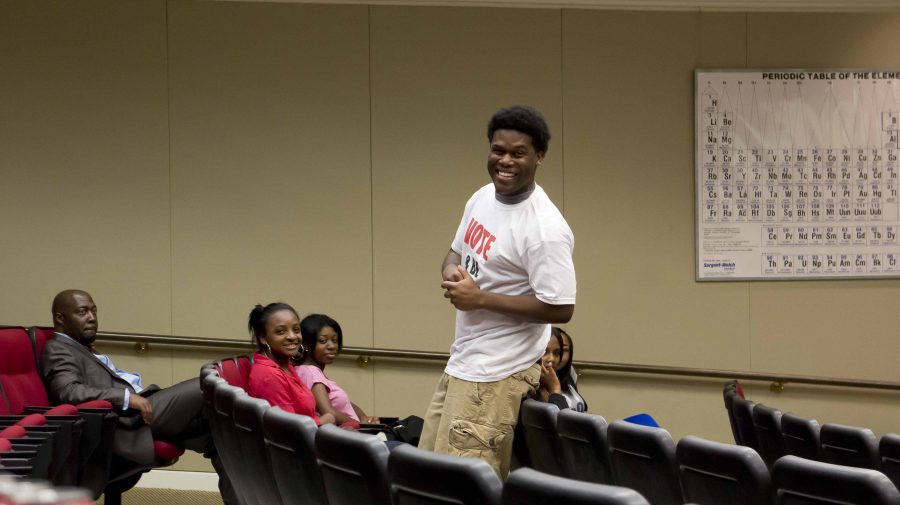A voting rally was held on The University of Alabama campus on Oct. 23 to promote the education and involvement of young voters in the state and around the nation.
Both UA chapters of the Future Black Law Student Association and the Collegiate 100 Black Women organization hosted an event titled the “Vote & Be Heard Empowerment Rally.” The organizations, who have only been on campus for a year, wanted to jump right into the election spirit.
“The rally’s mission was really a voter empowerment campaign,” Andrea Dobynes, a senior majoring in communication studies and the vice president of both Collegiate 100 Black Women and Future Black Law Student Association, said. “We didn’t try to endorse any one candidate. We just wanted to say, ‘If you are eligible to vote, go register to vote.’”
Robert H. Turner, Jr., an attorney out of Marion, Ala., was the main speaker of the event, focusing on voting as an integral piece of democracy that college-aged students should capitalize on.
“Voting gives you an opportunity for people to hear what you have to say,” Turner said. “One of the biggest problems that we have in society is that there are so many people who feel like they are voiceless. They feel like what they say or what they feel does not matter. A lot of times, we are influenced by things we hear on the radio or the things we watch on television or things we see in our community.”
“Sometimes, the things we see depress us so much that they push us into corners until we feel like our voice does not matter,” he said. “You should never feel as if your voice doesn’t matter because we all have something to say.”
Turner concentrated on reminding the audience of the history and hardship of voting among minorities in the United States. He said the Dred Scott Decision of 1857, a Supreme Court decision which ruled African Americans were inable to be citizens, and the Voting Rights Act of 1965, which banned practices inhibiting African Americans from voting as citizens, are only two of many moments throughout U.S. history that should remind people of the importance of democracy.
“That’s why it is so frustrating when we see young people, old people – black, white, regardless of your nationality – that take the right to vote for granted,” Turner said. “When you decide not to let your voice be heard, it’s a slap in the face to those persons, who, all they wanted was an opportunity to be heard.
“The privledge to vote and say, ‘I support this position’ or ‘I support this person,’ is something we should not take for granted simply because of the historical context of which our voting rights came about and also because of the importance of letting your will be expressed,” he said.
Oniska Blevins, a senior majoring in telecommunications and film and president of the Collegiate 100 Black Women, said this struggle for minority suffrage is a major component for her personal voting habits.
“I think voting is important because if you don’t vote, your voice won’t be heard, and by that, it means that you can make all the complaints you want, you can send out all the tweets, Facebook statuses – none of that matters. Once you cast your vote, that’s what’s being counted; that’s what’s being looked at,” Blevins said. “As young African American people – most of us in here – I think it’s important for us to vote because throughout history, we had to fight for the right to vote – and as well as women.”
Turner concluded with advice for young voters.
“Become informed, don’t be deterred, and let people hear what you have to say,” he said. “Whether it’s in the elections in your sorority, fraternity, your local, your homecoming – vote for that. Let your voice be heard.”









